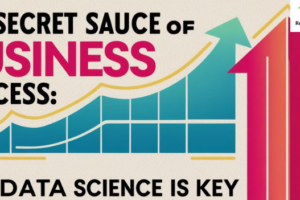
Top 5 Job Opportunities in 2025 for Python Developers
- Date January 20, 2025
Introduction
In an era where technology accelerates at dizzying speeds, one fact emerges as undeniable: Python’s meteoric rise transcends mere trendiness; it signifies a profound transformation in how industries operate. Celebrated for its elegance and efficiency, Python is the heart of innovation, intertwining with countless sectors—from automation and data analysis to web development. Are you ready to ride this ever-flowing tide of opportunity? Let’s embark on a journey into the Top 5 Python Developers Job Opportunities in 2025, illuminating the paths where your skills can not only survive but thrive in a rapidly evolving tech landscape.
Why Python?
What makes Python so utterly enticing? Let’s dissect its allure. With its clear, elegant syntax, Python serves as an inviting gateway for both novices and seasoned developers to articulate complex ideas simply. Unlike other languages that often impose hurdles with intricate syntax, Python welcomes all. Its versatility and impressive scalability further enhance its appeal for Python developers job seekers.
Whether diving into data analytics, crafting compelling web experiences, or venturing into machine learning, Python stands as the versatile tool for a multitude of tasks.A rich trove of solid libraries: machine learning with TensorFlow, data manipulation with Pandas creates Python as the ultimate toolkit for freshman Python developers job prospects. In mastering Python you’re not just mastering a language you are venturing into a large cosmos of possibilities, a galaxy where concepts are built in to creations.
Imagine the thrill of creating intricate data visualizations or the satisfaction of developing algorithms that evolve through data. The horizon is a vast canvas awaiting your creative strokes. Python’s adaptability guarantees its relevance amidst tech’s relentless evolution. Whether you’re exploring Internet of Things (IoT) innovations, building cloud services, or diving into the depths of artificial intelligence, Python arms you with essential tools to navigate this ever-progressing landscape of Python developers job potential.
The Landscape for Python Developers in 2025
Casting our gaze toward 2025, what does the landscape hold for Python developers job aspirants? The job market was given an image as bright and full of opportunities! In every field, there is a growing tendency to use Python for powering applications as differentiated as groundbreaking artificial intelligence to innovative web platforms and automation utilities. Businesses want to hire successful developers who are ready to work in this evolving environment and predict that the next several decades will bring an increase in demand for Python enthusiasts and developers on the labor market.
Let’s unpack the Top 5 Python Developers Job Opportunities in 2025, roles that could catapult you into a successful and fulfilling career in this dynamic domain!
1. Data Scientist
Perhaps the best approach would be to group data scientists into today’s alchemists – where disparate datasets are converted into valuable insights. With statistical knowledge, advanced levels of Al, and insight, they seek patterns that are vital for making some of the business decisions. They are there to connect entities and provide conclusions which are necessary to trigger change in the organization.
As data stewards, data scientists possess the raw power to improve the company’s strategies by analyzing each aspect and creating predictive models. Indeed, in an era some refer to as the age of data as the new crude, their appointments can hardly be more central.
Required Skills
- Mastery of Python Libraries: Pand, NumPy, SciPy, and all similar tools need to be mastered to navigate the sea of data analysis.
- Machine Learning Savvy: Basic knowledge of algorithms and appropriate exposure and proficiency of libraries like scikit-learn and TensorFlow helps data scientist to develop and execute models for predictions.
- Data Visualization Expertise: Skills in visualization tools like Matplotlib and Seaborn are vital for presenting findings compellingly to stakeholders.
- Statistical Acumen: Understanding statistical principles allows data scientists to interpret results effectively, revealing not just what the data indicates but also the reliability of their findings.
Why This Job Rocks
Rising Demand: The insatiable quest for data insights fuels relentless demand for adept data professionals capable of unraveling chaos.
Lucrative Salaries: With a compensation often soaring into six figures, data scientists command respect in a data-driven world.
Diverse Challenges: The unique nature of each project ignites creativity and problem-solving, ensuring monotony never sets in.
The Future of the Role
The projection is that as we approach 2025, the analytics associated with the role of the data scientist will expand even more. A constant want to know what is going on is going to be important with growing machine learning models and increasing concern for ethics in data.Aspiring data scientists must embrace big data technologies like Hadoop and Spark, while also portraying a keen understanding of AI ethics, adapting to the new frontier of moral reasoning in tech.
2. Machine Learning Engineer
What Does a Machine Learning Engineer Do?
If the fusion of mathematics and programming excites you, then machine learning engineering might just be your ideal path! These engineers serve as the architects of algorithms, turning theoretical concepts into practical implementations. They design systems that learn and improve from data, continually evolving their functionalities. ipiscing elit. Ut elit tellus, luctus nec ullamcorper mattis, pulvinar dapibus leo.
Required Skills
Advanced Python Proficiency: Deep knowledge of Python is imperative for efficiently building and deploying models at scale.
Algorithmic Design Skills: The capacity to engineer and optimize algorithms for specific uses is crucial, directly affecting performance.
Framework Familiarity: Knowledge of platforms like TensorFlow, Keras, and PyTorch is essential for developing cutting-edge models capable of sophisticated tasks.
Data Engineering Insight: Managing substantial data sets and understanding database technologies is vital for effective data preparation and organization.
Perks of the Job
Access to Cutting-edge Technologies: Engaging with the latest advancements keeps you at the forefront of the tech curve.
Significant Contributions: Your work can revolutionize business practices, enhance service offerings, and influence entire industries.
Expansive Growth Potential: The evolving machine learning arena offers opportunities for specialization in areas like natural language processing, computer vision, and reinforcement learning.
The Future of Machine Learning Engineering
The trajectory for machine learning engineers is steep and promises to become steeper. With advancements in deep learning and AI surging, adaptability will be crucial. More experience with cloud platform solutions as AWS or Azure will be instrumental as organization integrated machine learning within their business processes.
Also, integration will be essential — machine learning engineers will rely not only on their efforts to build becoming closer to end-to-end solutions; they will need to cooperate with data scientists, business analysts, and IT specialists. Thus, such skills as communication would become as relevant as the actual technical knowledge and abilities. As such, honing communication skills will become as imperative as technical expertise.
3. Full Stack Developer
Consider the full stack developers as being the all rounders of the IT industry skilled in the complexities of the both the browser and the server side. Thanks to that, you can state that they are highly useful for any tech team because of their various skills.
Required Skills
Python Framework Expertise: Proficiency in frameworks like Flask and Django is crucial for building robust and efficient applications.
JavaScript Proficiency: Skills in front-end development utilizing JavaScript and frameworks like React or Angular are essential for creating engaging, interactive experiences.
Database Management Acumen: Proficiency in SQL (PostgreSQL, MySQL) and NoSQL (MongoDB) systems is critical for effective data storage and manipulation.
Version Control Mastery: Familiarity with tools like Git is essential for facilitating smooth collaboration in development environments.
Why Choose This Path?
Varied Responsibilities: The breadth of tasks ensures boredom never takes root, with each day presenting new challenges, from coding to design and deployment.
High Demand: All technology companies are in search of full stack developers, making the role arguably one of the most desirable in the sector.
Flexible Opportunities: There still is work for full stack developers whether in a startup or even in a firm that they deem to fit their lives and personalities. It will be beneficial to those knowledgeable in how to incorporate security into integration of DevOps methods in their work.
The Future of Full Stack Development
As technology advances, the full stack development landscape is set for transformation. Knowledge of DevOps practices and familiarity with containerization tools like Docker will become increasingly advantageous. The rise of serverless architecture suggests that adaptability to new deployment frameworks will be essential.
Furthermore, as industries seek to enhance user experiences, full stack developers who can integrate design skills will be particularly sought after. Staying updated on design principles and accessibility standards will ensure competitiveness in the job market.
4. DevOps Engineer
What Does a DevOps Engineer Do?
DevOps engineers are the middle link between development and deployment and integration processes. Through proactively applied process automation, they establish and sustain a culture of process collaboration and enhancement.
Required Skills
Scripting Skills: Strong proficiency in Python is essential for effective automation and orchestration tasks.
Continuous Integration/Deployment Mastery: Familiarity with tools like Jenkins is vital for enhancing workflow efficiency.
Cloud Services Expertise: Experience with platforms like AWS or Azure is crucial for managing applications in cloud environments.
Container Technology: Knowledge of Docker and Kubernetes is essential for managing application scaling and orchestration.
The Appeal of the Role
Increased Demand: As the push for automation intensifies, companies are hunting for skilled DevOps engineers across various industries.
Collaborative Environment: The synergy between development and operations fosters an innovative workspace where creativity flourishes.
Clear Advancement Paths: Roles in DevOps typically offer defined trajectories toward senior positions, accentuating both skill enhancement and leadership opportunities.
The Future of DevOps Engineering
As organizations embark on digital transformations, DevOps engineers’ roles are set to expand. Comprehending site reliability engineering and security in DevOps will be pivotal. Furthermore, as AI is further extended for development processes, it will become a key competitive advantage to have skilled professionals for MLOps that mediate between the data science and operational domains.
5. Cybersecurity Analyst
Cybersecurity Analyst Basic Responsibilities
With cyber threats getting worse every other day, cybersecurity analysts can be seen as the watchmen of information worth protecting. Their task? To identify vulnerabilities, implement security measures, and orchestrate incident responses to safeguard organizational assets.
Required Skills
Grounded Security Knowledge: A solid understanding of risk assessment, compliance, and incident response protocols is crucial for mitigating threats.
Python Proficiency: Scripting capabilities facilitate automation in security measures and streamline threat monitoring.
Networking Acumen: A comprehensive grasp of networking principles is vital for recognizing and addressing potential risks.
Incident Response Expertise: The ability to swiftly identify and respond to security breaches is essential for maintaining integrity and minimizing damage.
Why This Role Is Crucial
Resilience Amidst Recessions: The escalating importance of cybersecurity means that job prospects for analysts remain robust, even in economic downturns.
Dynamic Challenges: The ever-evolving threat landscape keeps work engaging, necessitating continuous learning and adaptation.
Critical Mission: Cybersecurity analysts play a vital role in protecting user data and corporate assets, fostering trust in an increasingly digital world.
The Future of Cybersecurity Analysis
Nevertheless, with increased repetitiveness and development of various cyber threats, analysts cannot afford to stay in the dark. Knowledge of machine learning applications in threat intelligence especially in cybersecurity will set the best talent apart.
Additionally, as organizations navigate regulatory landscapes, understanding compliance standards will be crucial. Effective communication skills will also become essential, as analysts often need to translate complex security concepts for non-technical stakeholders.
Conclusion
Thus, Python developers job aspirants are heading towards a colorful landscape of job opportunities in the upcoming years particularly as we beat the line to the year 2025. Big data analytics, artificial intelligence, web development, and cyber security are emerging as potential areas need employees with the right skills to handle Python and its fluidity. And by developing the skills and sharpening knowledge about the job offers, you prepare your self for the challenging job market of Python developers. Build your knowledge and work experience today for tomorrow’s returns as part of a team working on groundbreaking projects. Your journey is not only a job; it has adventure each stage presenting unique opportunities. It is high time to unleash the power of Python – to your Python developers’ job aspirations – let them soar high!
FAQ's
In the later, though having a degree in computer science can useful, experience comes in handy. Build a robust portfolio, engage in hands-on projects, and learn Python through online resources and coding boot camps.
Absolutely! Python serves as a foundational language that can open many doors. However, broadening your skill set with frameworks and libraries pertinent to your desired field will significantly enhance your employability.
Apply the recommended tool sets to actual project, participate in open source projects, try coding competitions and engage with local technologists. Simply going through all the formal papers, even if one attends all the related courses, will increase the knowledge of it when the gained information is implemented in practice. Daily, weekly, or monthly quizzes revising the official documentation while performing the activities which require the use of the given skills will enhance the understanding.
Regularly read technology blogs, sign up for technology newsletters, attend podcasts, and use discussion boards and forums in the technology niche. Contacts can also offer information on new technologies and, of course, vacancies.
Certainly! On one hand, it is the current trend of working remotely; on the other hand, there is a great demand for people who can work with Python.
You may also like

The Ultimate Guide to Mastering Data Analysis in 2025


